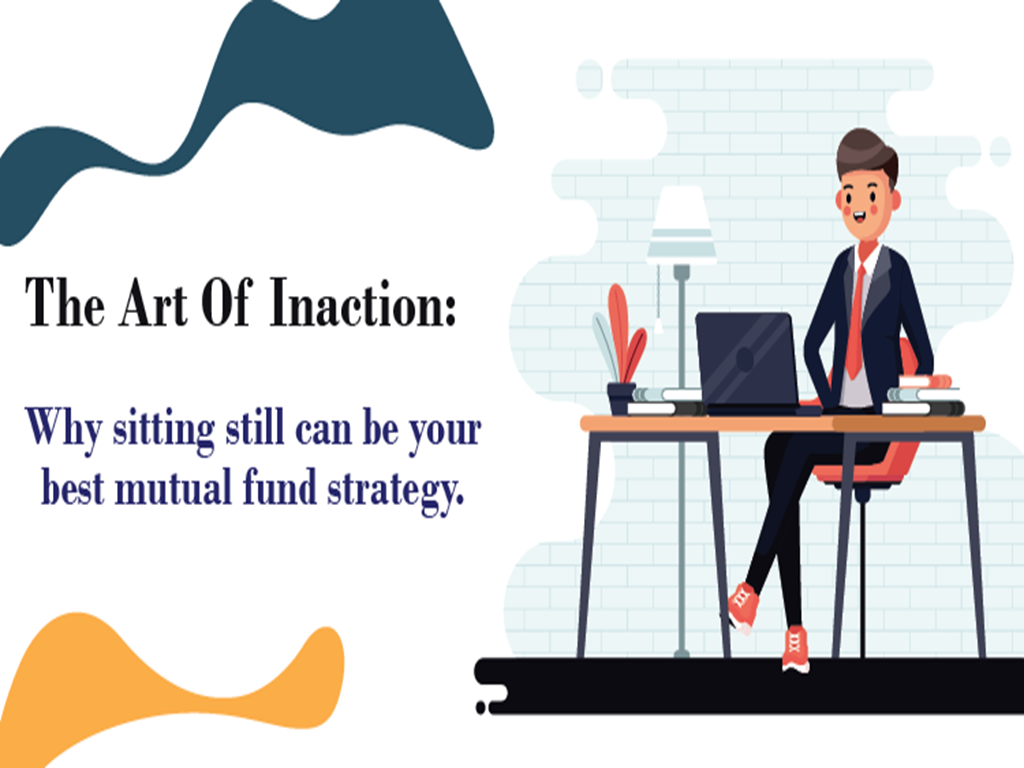
The art of INACTION
The Art of Inaction: Why Sitting Still Can Be Your Best Mutual Fund Strategy
In the fast-paced world of mutual fund investing, we're constantly bombarded with advice to act: switch funds, rebalance portfolios, or chase the latest hot sector. But what if I told you that sometimes, the most powerful strategy is to do absolutely nothing? Welcome to the investing paradox, where inaction can be your greatest ally.
The Power of Staying Put
Riding Out Market Volatility Markets are inherently volatile. When your mutual fund investments experience short-term dips, it's tempting to switch to a "better-performing" fund. However, this often leads to buying high and selling low – the opposite of successful investing. By sitting tight, you allow your investments to recover and potentially benefit from long-term growth.
Consider the COVID-19 market crash in March 2020. Investors who panicked and sold their mutual fund units locked in losses, while those who held on saw their investments recover and even surpass previous highs in the following months.
Harnessing Compounding Consider Compound interest to be the "eighth wonder of the world." When you stay invested in a mutual fund, you benefit from compounding returns. Your returns earn returns, creating a snowball effect over time. Frequent switching can disrupt this powerful force.
For example, a ₹10,000 monthly SIP in an equity mutual fund, assuming a 12% annual return, could grow to approximately ₹1.70 crore over 25 years.
Avoiding Emotional Decision - Fear and greed are an investor's worst enemies. Market downturns can trigger panic selling, while bull runs can lead to FOMO (fear of missing out) buying. By committing to a "do-nothing" strategy, you sidestep these emotional pitfalls.
Legendary investor once said, "The stock market is a device for transferring money from the impatient to the patient." This wisdom applies equally to mutual fund investing.
Minimizing Costs Every time you buy or sell mutual fund units, you may incur costs – be it exit loads, taxes on capital gains, or transaction fees. Fewer transactions mean lower costs, leaving more money invested to grow over time.
Staying put helps you avoid these unnecessary expenses.
Capitalizing on Professional Management Remember, mutual funds are managed by professionals. When you invest in a fund, you're essentially hiring an expert to make investment decisions for you. Constantly second-guessing and switching funds negates this benefit.
Fund managers have access to research, analysis, and market insights that individual investors typically don't. By doing nothing, you're allowing these professionals to do their job and navigate market conditions on your behalf.